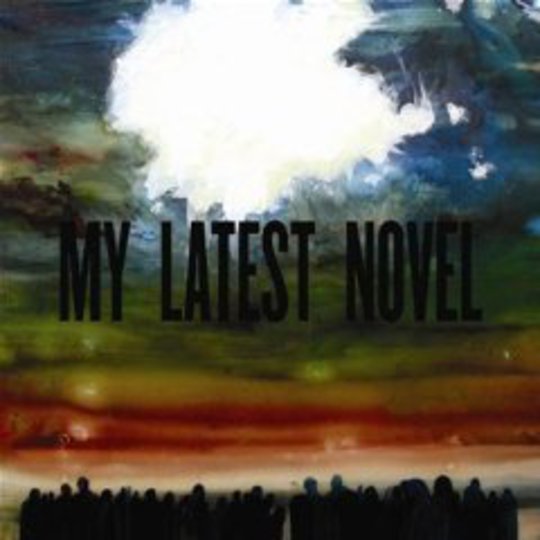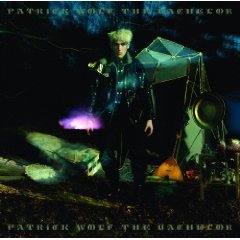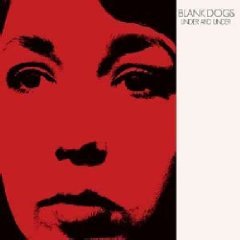In any given year, the idea of a literary Scottish indie group (especially with strings or chamber-orchestration) is going to be appealing, however far you look back. It’s something they seem to do well, north of the border, or it’s what we ignorant southerners tend to focus on, in any case. Nonetheless, when My Latest Novel appeared a few years ago, they seemed to be part of a post-Arcade Fire feeding frenzy that didn’t guarantee any of the bands benefiting from the attention would be as great. To damn with faint praise: MLN were among the most promising, or most likely to make a strong second or third record. So, here we are now; entertain us…
Opening track, ‘All In All In All Is All’ establishes the template with a surge of guitars and violins, and three distinct voices swooping in and out, with strong harmonies. Problematically, the dominant voice here, and for much of the album (but not all), isn’t really that engaging – Chris Deveney's gruff, grizzled, tenor is clear and yet lacks the ‘instant expressiveness’ of a voice like Aidan Moffat’s beer-soaked growl or Will Hutchinson’s plaintive but punchy whine. By the time each song reaches its chorus or climax (with countermelodies aaah-ing and oh-oh-oh-ing around the main line) you’re hooked, but rarely pulled-in at the first verse, whether by the narrative, the emotion, or the melody.
About this whole ‘literary thing’... ‘Dragonhide’ aims high by alluding to Scotland’s greatest epic novel, Alasdair Gray’s Lanark, in which “dragonhide” is a kind of pervasive psoriasis that heralds a gruesome metamorphosis, and stands for emotional hardening, as the drab socialist dystopia crushes your spirit. The song – and much of the album – wouldn’t make a bad soundtrack, if anyone ever tried to bring Gray’s novel to the screen (bear in mind, that’s ‘Scotland’s greatest epic’ because the setting is so integral – not as some lame caveat that it’s only great in a small country.) Elsewhere, MLN’s lyrics seem preoccupied with war, but – without ever sounding trite – they don’t quite succeed in saying much of note.
Music-wise, the album’s centrepiece ‘Argument Against The Man’ is one of the most Arcade Fire-like moments, although it doesn’t suffer by comparison – after a dramatic climb to the chorus, the strings and horns swell too, and then subside over a dense chorus. Unnecessarily, the song’s climax is followed with an extended coda in the form of ‘Man Against The Argument’, before a soaring evocation of the drama and high tragedy of war on ‘If The Accident Will’ – probably the song that best makes use of a lighter, younger voice juxtaposed with the main vocalist. It’s not all Arcade Fire, though, as ‘Hopelessly, Endlessly’ echoes Explosions In The Sky, whose second album (Those Who Tell The Truth Shall Live…) similarly dwelled on war – here, jangling guitars replace the delay and chorus that are the Texans’ signature sound, but it’s a strikingly similar dynamic.
Unusually, but very effectively, Chris's brother Gary takes over lead-vocal duties for the first few verses of the last two tracks with his more delicate, sensitive delivery. Surprisingly – and perhaps coincidentally, unless this influence is buried deeply in the songwriters’ unconscious – ‘Re-Appropriation Of The Meme’ sounds like a low budget re-write of Queen’s most ambitious production: the moving and possibly self-elegizing ‘Who Wants To Live Forever?’ (with orchestra, boy’s choir, and a rare duet from May and Mercury). Wow – never expected to make a positive comparison to Queen on DiS…
All in all, My Latest Novel have smoothed down the rough-edges of the first album, and continue to develop as songwriters. Like Idlewild, they’re smart enough not to sound pompous when they’re making big music, and perhaps need to choose between their lead singer actually singing – i.e. pushing his range – or focusing on conveying a narrative, and its emotion.
-
7Alexander Tudor's Score






















